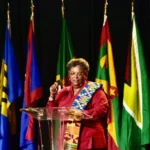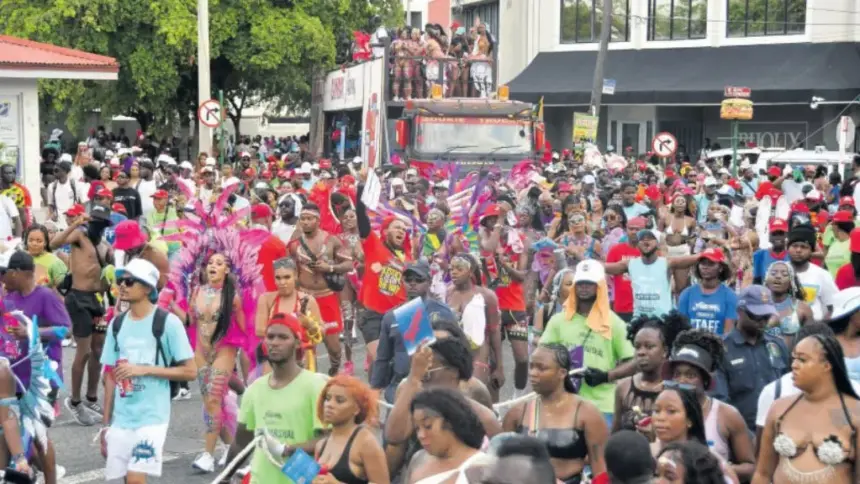Estimated $5 billion in earnings over Carnival week, says tourism ministry
THE 2024 Carnival week, which culminated on Sunday, April 7 with thousands of revellers on the streets of the Corporate Area, generated more than $5 billion in revenue according to preliminary figures from the Ministry of Tourism.
With hotels in the Corporate Area fully booked for last weekend and the financial spin-offs to several sectors, senior advisor and strategist in the Ministry of Tourism Delano Seiveright on Monday told the Jamaica Observer that the Carnival season returned to pre-COVID levels.
“We had about 10,000 revellers yesterday across all the bands, which is in line with 2019 pre-COVID numbers — which was massive,” said Seiveright as he noted that there were also thousands of spectators who lined the streets for the road march.
“We are still tabulating broader numbers, however we are certainly looking past the $5-billion mark re overall revenues pumped into the economy. Hotels, Airbnbs, airlines — from which the Government collects quite a bit of taxes — ground transportation operators, hairdressers, barbers, costume designers, production teams, party promoters, food and drink suppliers, vendors, restaurants, private security, and many more raked in quite a lot.
“We also had a number of celebrity social media influencers fully engaged, giving us countless value in international exposure. It was a great Carnival in Jamaica,” added Seiveright.
Jamaica’s Carnival had its roots in the 1940s when students from Eastern Caribbean territories, particularly Trinidad and Tobago, recreated their culture of playing mas on the grounds of The University of the West Indies, Mona campus.
In 1989 a group of revellers, who had been making the annual trek to Port-of-Spain, Trinidad, for Carnival, cancelled their trip in the aftermath of Hurricane Gilbert in 1988, and the 1989 election.
At that time the now-deceased band leader Byron Lee and friends conceptualised a plan to bring the music, energy, and vibe of Trinidad and Tobago’s annual Carnival to Jamaica.
The first road march was held on April 22, 1990 and Jamaica Carnival has grown considerably over the years, except when the COVID-19 pandemic put a stop to the road march in 2020-21.
Seiveright noted that in 2017 the Tourism Linkages’ Sports and Entertainment Network joined forces with Ministry of Culture, Gender, Entertainment and Sport, and the respective Carnival bands, in an official partnership.
“[Tourism] Minister [Edmund] Bartlett wanted to build out the local Carnival experience, making it more marketable to both visitors and locals. This is in keeping with strategic steps that we are undertaking at the tourism ministry to strengthen Jamaica’s competitiveness as an entertainment destination as we reposition and diversify our product to generate higher growth rates in both visitor arrivals and earnings,” Seiveright told the Observer.
“And so, taking into consideration available assets, resources, current global positioning and potential for development, the Sports and Entertainment Network is identifying products to market Jamaica as an entertainment destination,” added Seiveright.
He said the objective is to strengthen Brand Jamaica’s image; expand the traditional tourist season; attract domestic and international visitors; and spread the benefits of tourism more evenly.
“This collaboration between the various ministries, government agencies, and organisers of many of the biggest local Carnival bands and brands is paying off handsomely for Jamaica and Jamaicans,” declared Seiveright.
“Carnival is generating significant economic activity in a range of sectors in the local economy such as entertainment, media, hospitality, and retail,” added Seiveright.










